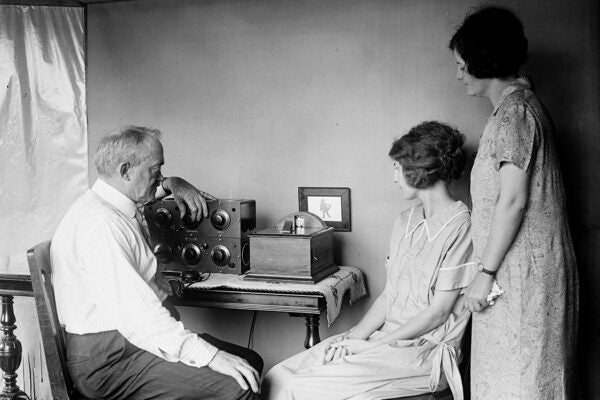Phantoscopes, Radiovision, and the Dawn of TV
After creating a projector called the Phantoscope in 1895, C. Francis Jenkins successfully tackled the problem of transmitting motion pictures through radio.
Amplifying Emotion: Radio and Interwar Political Speech
As radio matured in the twentieth century, politicians harnessed the technology in different ways to break down barriers between them and the public.
What the Shadow Says
The appearance of the vigilante crime fighter known as the Shadow in the writings of Plath, Kerouac, and Baraka reveals a twentieth-century duality.
Music Only for a Woman: The Birth of Easy Listening
A 1970s radio format geared towards the "feminine psyche" featured musical rearrangements with softer and gentler styles of the day's hits.
The Boomin’ Systems: The Evolution of Car Audio
Sound systems, as much as the automobiles themselves, symbolized upward mobility, social affiliation, and cultural identities.
The Rise and Fall of “True Crime” Radio Dramas
Depictions of poor, non-white victims and informants led working-class and rural listeners to turn against the genre.
How Black Radio Changed the Dial
Black-appeal stations were instrumental in propelling R&B into the mainstream while broadcasting news of the ever-growing civil rights movement.
How Black CB Radio Users Created an Audible Community
CB radio was portrayed as a mostly white enthusiasm in its heyday, but Black CB users were active as early as 1959.
Can Radio Really Educate?
In the 1920s, radio was an exciting new mass medium. It was known for providing entertainment, but educators wondered if it could also be used for education.
The People Who Thought Farmers Without Radios Were Rubes
In the 1920s, some people thought that the new invention of radio would make American farmers less "backward."









